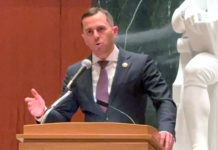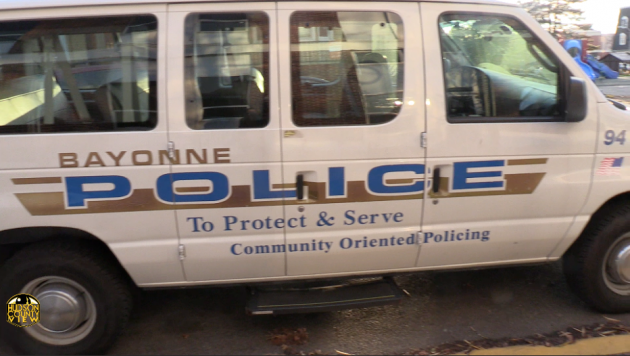Former Governor Jim McGreevey (D), Assemblyman Tim Eustace (D-38), and Ocean County Prosecutor Joseph Coronato were part of the Guarini Institute for Government and Leadership panel discussion on the heroin and opiate crisis sweeping the state of New Jersey.
[fve]https://www.youtube.com/watch?v=od1_VayMpws[/fve]
Coronato referred to the crisis as the “synthetic storm†and predicted the number of deaths to double by 2018.
“I believe the storm, I call it the synthetic storm, is Fentanyl. It’s there and I think the numbers, I think that we’re going to be, probably in Ocean County, somewhere around 180 deaths this year, at the end of this year, unfortunately,” he said.
“Next year, we will be well into the 200’s and probably by 2018 we will be into 300’s people a year dying from the heroin Fentanyl.”
Eustace, also a chiropractor and a recovering addict, pointed out the problems that come from dentists and other doctors prescribing their patients with 30 days worth of Oxycontin and Vicodin.
“20 years ago this wasn’t an issue. But now, I have kids, high school athletes in my practice who are on drugs they should never have been put on. And that leads to the gateway,” Eustace reflected.
“That leads to shopping in my medicine cabinet. That leads to high school kids making $20 to $40 from a single Vicodin or a single Percocet. I don’t think physicians understand enough about addiction to begin with and the legislature is at fault.â€
Additionally, Eustace is the vice chair of the Heath and Senior Services of New Jersey and pointed out that all the surrounding states use an e-scribe system: where other doctors can reference whether or not the patient is on certain medications or opiates. But in New Jersey, this information is voluntary.
Monroe Township Council President Cody Miller, who’s older brother is a recovering drug user, shared his fear of dependence when he got his wisdom tooth pulled out.
Miller explained that a wisdom tooth or a broken leg or arm should not justify a prescription for Vicodin. “Ibuprofen works just the same,” he said.
A member from the attending public yelled “It’s the pharmaceutical companies,†pointing out the commercials that portray the magic pill that makes your feel great again.
McGreevey, now the head of the Jersey City Employment and Training Program, shared the same sentiments with Eustace, stating that at this point, it’s a crisis and legislation needs to step in.
“The inability for the medical profession to monitor or regulate themselves, it’s incumbent upon the state to do so,†explained the former governor of New Jersey.
In addition to loose prescriptions and the accessibility of synthetics through eBay, a question by a student from St. Peter’s University caused Michael DeLeon, an anti-drug activist, to have a disagreement with McGreevey and Coronato.
The student, John Payne, asked if there should be a different approach on low level crime like drug use, since it is more of a sickness.
Coronato and McGreevey both support drug court and HARP, a heroine rehab program, and believe that the new reform where drug users are treated instead of incarcerated are a better approach.
DeLeon firmly believes that until the 10,000 plus users have a place to go voluntarily throughout the state, going to jail can save lives as it saved his.
Michele Perez, chairperson of the Monroe Twp. Municipal Alliance Commission, firmly believes that schools, parents, medical professionals, law enforcement and rehabilitated drug users need to work together cohesively and share information in order to battle a crisis some already consider a “pandemic.”
According to a study by the Guarini Institute, New Jersey has over 27,000 in substance abuse programs and 40 percent of their patients list heroin as their drug of choice.
Currently, Cape May County leads the state with over 1,000 people per 100,000 residents enrolled in dug abuse treatment programs.
The event was moderated by Stephen Sterling, a journalist and the author of Herointown.











Good article. Excellent panel discussion. I was there.
Here are three action steps that the federal government could take to help address this issue:
1. Establish a nationwide prescription drug monitoring program in order to prevent people from doctor shopping. (Mr. DeLeon said he had 67 doctors!)
2. Require the FDA to consider the potential for addiction and other harms when it is reviewing drugs for approval.
3. Prohibit doctors and dentists from issuing more than a 7-day prescription for an opioid drug.
By the way, the correct spelling of the drug that was mentioned is Fentanyl.